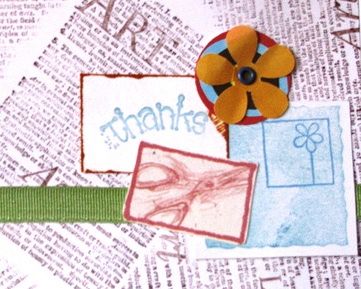I've blogged before about how to leave comments, why to leave comments and when to leave comments. I've challenged readers to leave one comment a day, to contribute substantively to online conversations and to answer questions or solve problems when commenting on blogs and discussion forums.
But there's a different kind of comment that doesn't involve solving problems, offering advice or sharing your story: courtesy comments. They can be simple thank you notes, words of recognition or quick messages to show you're listening.
 While these types of comments are easy to write, we often don't take the time to write them. Why? I think because they seem too simple, a bit too obvious, or not content rich enough to share. When, in fact, they're the basic building blocks of online conversations. They're like the body language of the Web. A nod here, an, "Oh, I see," or a smile that helps move a conversation and relationship forward.
While these types of comments are easy to write, we often don't take the time to write them. Why? I think because they seem too simple, a bit too obvious, or not content rich enough to share. When, in fact, they're the basic building blocks of online conversations. They're like the body language of the Web. A nod here, an, "Oh, I see," or a smile that helps move a conversation and relationship forward.
Here are five examples to consider:
- I can relate to this. You've just read a post that sounds similar - in some ways - to your own project or situation, or the work of a customer or client you know. Take a minute to say so. Empathy can be endearing online just as it is in person.
- I learned something here. Sometimes blog posts can provide a whole new way of looking at something. Other times, they just point us to a new technical resource or show us a Microsoft short cut we didn't know. Whatever it is, the author of a post always appreciates it if you say, "Cool tip. This will be helpful for me in the future."
- Thanks for mentioning us. Not every mention of you, your product or your company needs a long, detailed response. But that doesn't mean you should ignore the post and not respond at all. When somebody links to your site, offers your work as an example or includes your product in a list, it's nice to say thanks - and readers will recognize the kindess of your gesture.
- Thanks for the feedback. Just as every mention doesn't require a detailed response, not every criticism deserves a lengthy defense. When you don't agree with everything a critic says but also don't feel like it's worth your time to refute every point, it can still be beneficial to say, "Thanks for taking the time to review our recent project/product/idea/release. We're taking your feedback into consideration as we move forward."
- A response is coming. This is useful for when you read an important post and pass it along to a subject matter expert to reply. Sometimes that expert is traveling or thinking about the best response. In the meantime, it's helpful to at least acknowledge that you've seen the post, like this: "Thanks for the question/idea/post/comment/feedback. I've passed your thoughts on to the leader of this project and will get back to you with a response as soon as possible."
The obvious caveat here is not to overdo it. You don't want to be the one nut job writing, "Thank you. Great topic! You always teach me so much," on every single SAS Dummy blog entry. And you don't want 10 different people from your company writing 10 glowing courtesy comments on the same blog post.
But if you do it right and within moderation, a courtesy comment that takes one or two minutes to write will be exponential in the good will it spreads. Every person who reads that blog regularly or shows up there randomly via search will also have a chance to read your comment and think, "That was nice. It's good to see this company is listening and responding. I might like to get to know more about them."

4 Comments
Thank you for confirming what I believe in doing as a matter of good customer service!
Thanks. I appreciate the comments!
Thank you both for the feedback. I appreciate the comments too, of course.
Pretty good post. I just stumbled upon your blog and wanted to say that I have really enjoyed reading your blog posts. Any way I'll be subscribing to your feed and I hope you post again soon.
web reputation